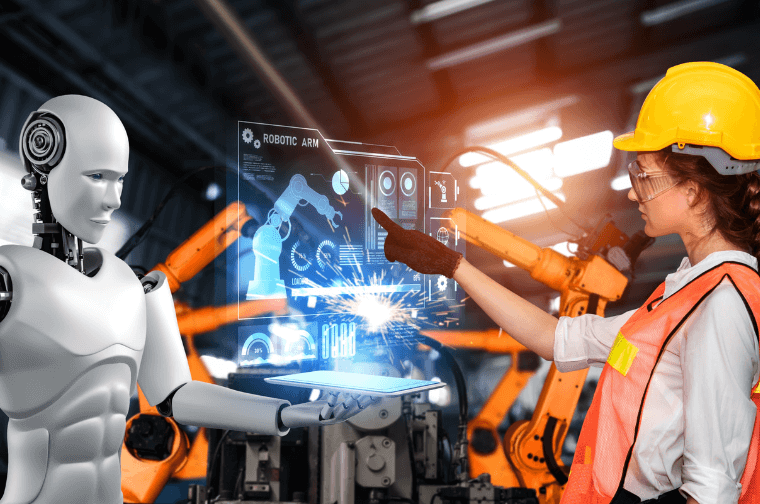Personalized Learning and How AI Is Revolutionizing Education
Education stands at a transformative crossroads. Traditional models of one-size-fits-all learning are being challenged by the rise of personalized learning, a dynamic approach tailored to the unique needs, interests, and abilities of individual learners. At the heart of this evolution is artificial intelligence (AI), a technological force reshaping educational landscapes and empowering learners like never before.
This article delves into what personalized learning truly entails, how AI amplifies its potential, and why this paradigm shift is pivotal for the future of education.
What Is Personalized Learning?
Personalized learning is an educational approach that customizes the learning experience based on the individual student’s strengths, weaknesses, preferences, and pace. Unlike traditional methods that treat all students uniformly, personalized learning recognizes that every learner is unique and requires different tools and strategies to thrive.
Key Features of Personalized Learning:
- Learner-Centric Approach: Students take ownership of their learning journey, setting goals and tracking progress.
- Flexible Learning Paths: Content delivery adapts to the learner’s pace and style.
- Data-Driven Insights: Continuous assessment informs instructional decisions.
- Competency-Based Progression: Advancement is based on mastery rather than time spent in class.
- Diverse Learning Modalities: Incorporation of visual, auditory, kinesthetic, and interactive learning experiences.
The Role of AI in Enhancing Personalized Learning
Artificial intelligence is a game-changer for personalized learning. By analyzing vast amounts of data and making real-time decisions, AI enables educators to deliver highly customized learning experiences.
1. Adaptive Learning Systems
AI-powered platforms can adjust the difficulty level and type of content based on a learner’s performance. For example, if a student struggles with algebraic concepts, the system can provide additional exercises, tutorials, and assessments until mastery is achieved.
2. Intelligent Tutoring Systems (ITS)
AI-driven tutoring systems simulate human-like interactions, offering personalized feedback and guidance. These virtual tutors are available 24/7, providing learners with immediate assistance.
3. Predictive Analytics for Early Intervention
AI analyzes patterns in student data to identify those at risk of falling behind. Educators can then intervene proactively with targeted support.
4. Natural Language Processing (NLP)
NLP enables AI to understand and respond to human language. This technology powers chatbots and virtual assistants that help learners navigate course materials and administrative tasks.
5. Content Recommendation Engines
Similar to how streaming services recommend movies, AI systems suggest learning resources tailored to a student’s interests and needs.
6. Automated Assessment and Feedback
AI streamlines the grading process by evaluating assignments and providing detailed feedback. This frees educators to focus on more meaningful interactions with students.
Benefits of AI-Enhanced Personalized Learning
1. Improved Learning Outcomes
By addressing individual learning gaps and reinforcing strengths, AI-driven personalized learning leads to better academic performance.
2. Increased Student Engagement
When learning experiences are relevant and tailored to individual preferences, students are more motivated and engaged.
3. Greater Accessibility
AI-powered tools break down barriers to education, offering personalized learning opportunities to students with diverse needs and backgrounds.
4. Enhanced Teacher Effectiveness
AI handles routine tasks such as grading and data analysis, allowing educators to focus on instruction and mentorship.
5. Lifelong Learning Opportunities
Personalized learning extends beyond traditional classrooms, empowering individuals to acquire new skills throughout their lives.
Challenges and Ethical Considerations
Despite its immense potential, AI-driven personalized learning is not without challenges:
- Data Privacy and Security: Protecting student information is paramount.
- Bias in AI Algorithms: Ensuring fairness and inclusivity requires continuous monitoring.
- Teacher Training: Educators need professional development to effectively integrate AI tools.
- Equity and Access: Bridging the digital divide is essential to ensure all learners benefit.
Best Practices for Implementing AI in Personalized Learning
- Start Small: Pilot AI initiatives before scaling up.
- Collaborate with Stakeholders: Involve educators, students, and parents in decision-making.
- Ensure Data Privacy: Implement robust security measures.
- Continuous Evaluation: Monitor and assess the effectiveness of AI tools.
- Provide Professional Development: Equip educators with the skills to leverage AI effectively.
The Future of Education: A Harmonious Blend of AI and Human Touch
While AI enhances personalized learning, the role of educators remains irreplaceable. The future of education lies in a harmonious blend of AI-driven innovation and the human touch—where technology supports, rather than replaces, the teacher’s role as mentor, motivator, and guide.
Imagine a classroom where every student thrives, not because they fit into a predetermined mold, but because their unique learning journey is honored and nurtured. This is the promise of personalized learning empowered by AI.
Conclusion
Personalized learning, amplified by AI, is revolutionizing education. It empowers learners, supports educators, and creates a more inclusive and engaging learning environment. As we navigate this transformative era, embracing AI’s potential while addressing its challenges will be key to shaping a future where education is a personalized, dynamic, and lifelong journey.
For those who envision a world where every learner can unlock their full potential, personalized learning with AI is not just a possibility—it’s the future.



